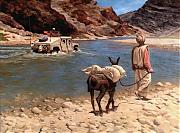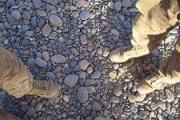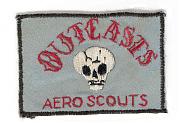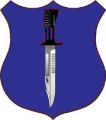During the war in Iraq, young army and Marine captains have become American viceroys, officers with large sectors to run and near-autonomy to do it. In military parlance, they are the "ground-owners." In practice, they are power brokers.
"They give us a chunk of land and say, 'Fix it,' " said Captain Rich Thompson, 36, who controls an area east of Baghdad.
The Iraqis have learned that these captains, many still in their 20s, can call down devastating American firepower one day and approve multimillion-dollar projects the next. Some have become celebrities in their sectors, men whose names are known even to children.
Many in the military believe that these captains are the linchpins in the American strategy for success in Iraq, but as the war continues into its sixth year the military has been losing them in large numbers — at a time when it says it needs thousands more.
Most of these captains have extensive combat experience and are regarded as the military's future leaders. They're exactly the men the military most wants. But corporate America wants them too. And the hardships of repeated tours are taking their toll, tilting them back toward civilian life and possibly complicating the future course of the war...







 ), every stripe in a different unit, so I don't guess I screwed up too badly running Cav, Scout and Recon platoons on three continents.
), every stripe in a different unit, so I don't guess I screwed up too badly running Cav, Scout and Recon platoons on three continents. 


 ) in the decisions have shown themselves to feel as that ultimately determines what happens.
) in the decisions have shown themselves to feel as that ultimately determines what happens.

 "A Sherman can give you a very nice... edge."- Oddball,
"A Sherman can give you a very nice... edge."- Oddball, 




Bookmarks